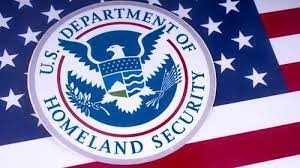DHS Rule Will Permit Remote I-9 Authorizations on a Permanent Basis
***UPDATE: The new edition of the Form I-9 has been released and can be found here.***
The United States Department of Homeland Security (“DHS”) has issued a final rule that will permit certain employers to remotely verify I-9 employment authorization documents on a permanent basis beginning August 1, 2023.
Historically, employers, or their “authorized representatives,” were required to review I-9 authorization documents in-person with the employee physically present. However, during the COVID-19 pandemic, DHS temporarily permitted employers operating remotely to engage in remote examination of documents, which flexibility is scheduled to end on July 31, 2023.
Under the new rule, to make use of remote authorization (which the rule refers to as the “alternative procedure”), employers must:
- Be enrolled, and participate in good standing in E-Verify;
- Use remote authorization for all employees at a site, or for all remote employees (but not for in-person or hybrid employees) so long as the employer does not adopt such a practice for a discriminatory purpose or treat employees differently based on a protected characteristic;
- Retain copies of all the documents presented by the employee to establish their identity during the alternative procedures; and
- Complete required E-Verify trainings on fraud awareness and anti-discrimination.
Further, the rule states that within three (3) business days of an employee’s first day of employment, an employer using the alternative procedure must:
- Examine copies of Form I-9 documents or an acceptable receipt to ensure that the documentation presented reasonably appears to be genuine;
- Conduct a live video interaction with the individual presenting the document(s) to ensure that the documentation reasonably appears to be genuine and related to the individual. The employee must first transmit a copy of the documents to the employer and then present the same documents during the live video interaction;
- Indicate on the Form I-9, by completing the corresponding box, that an alternative procedure was used to examine the documentation to complete the form, or for reverification, as applicable;
- Retain, consistent with applicable regulations, a clear and legible copy of the documentation; and
- In the event of a Form I-9 audit or investigation by a relevant federal government official, make available the clear and legible copies of the identity and employment authorization documentation presented by the employee for document examination in connection with the employment eligibility verification process.
The new rule will apply on a prospective basis to employees hired after the option takes effect on August 1. A new edition of Form I-9 also will be made available beginning on August 1 for use beginning on that date.
Employers who used remote document examination procedures under the flexibilities provided due to the COVID-19 pandemic and are now subject to the requirement to conduct in-person physical examinations of such documents by August 30, 2023 may use the alternative procedure to satisfy this re-examination requirement, provided that they:
- Were enrolled in E-Verify at the time of the remote examination while using COVID flexibilities;
- Created an E-Verify case for the employee (except for reverification, for which no E-Verify case needs to be opened), and;
- Performed the remote inspection between March 20, 2020 and July 31, 2023.
Employers making use of this accommodation under the final rule must also add “alternative procedure” with the date of the live video interaction (discussed above) to the employee’s I-9 form. As noted above, the accommodation does not apply to employers who were not enrolled in E-Verify – or did not create an E-Verify case for the employee(s) in question if required – at the time the remote verification was initially conducted.






